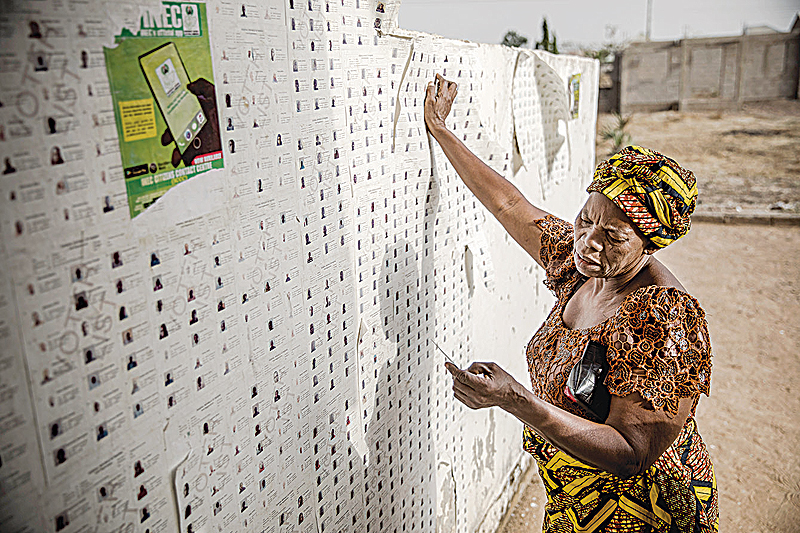Reports of problems with the delivery of election materials

ABUJA: Nigerians hoping to cast their ballots in elections set for Saturday were instead turned away from polling stations after the electoral commission's snap decision to delay the vote by a week. The move "deeply disappointed" President Muhammadu Buhari, who issued a statement calling for calm. "I, therefore, appeal to all Nigerians to refrain from all civil disorder and remain peaceful, patriotic and united to ensure that no force or conspiracy derail our democratic development," he said.
Many voters were caught unawares by the early morning announcement and arrived at polling places to find the doors barred and staff absent. "Why didn't they announce the delay earlier? Why make the announcement in the middle of the night?" asked Chidi Nwakuna, a businessman who showed up early to vote in the southern city of Port Harcourt. Voting had been due to start at nearly 120,000 polling stations in Africa's most populous nation at 0700 GMT, with a record 73 candidates on the ballot.
Buhari, 76, was set to seek a second term of office against a stiff challenge from the main opposition candidate, former vice president Atiku Abubakar, 72. But rumors began circulating late on Friday about a possible postponement after widespread reports of problems with the delivery of election materials, including ballot papers. Members of the Independent National Electoral Commission (INEC) held an emergency session in Abuja and after examining the logistics plans concluded the timetable was "no longer feasible", commission chairman Mahmood Yakubu said.
Presidential and parliamentary elections are now set for February 23, and governorship and state assembly elections have been pushed back to March 9, Yakubu said. "This was a difficult decision for the commission to take but necessary for the successful delivery of elections and the consolidation of our democracy," he added. The two main political parties swiftly condemned the move and accused each other of orchestrating the delay as a way of manipulating the vote, sentiments echoed by voters. "I see this postponement of the election as a… ploy to rig," said Oyi Adamezie, a voter in the city of Warri.
'We will overcome this'
For his part, Abubakar of the main opposition Peoples Democratic Party (PDP) blamed the Buhari government for "instigating the postponement" but called on supporters to remain calm. "We will overcome this. You can postpone an election but you cannot postpone destiny," he added in a statement. Nigeria has postponed voting before: in 2015, INEC announced a six-week delay just one week before the election, citing security concerns linked to the Boko Haram insurgency.
The six-week delay was seen as a way for then president Goodluck Jonathan to claw back votes after a strong challenge from Buhari, an opposition candidate. The same argument may be made again, with little to separate Buhari and Abubakar. Yet even before the delay's announcement, challenges were apparent in the vote's organization. In many areas suffering intermittent electricity supply and poor road infrastructure, thousands of INEC agents had been working into the night to deliver election materials. "They had much time to prepare," said Austin Onwusoanya, a civil servant in the largest city Lagos who was to manage a polling unit that now stood unused. "There are other things going on."
Campaign trail
Yesterday's last-gasp postponement comes after an election campaign in which Buhari had sought to portray himself as a continuity candidate. He came to power in 2015 on a promise to defeat Boko Haram Islamists, tackle rampant corruption and improve the country's oil-dependent economy. But the jihadists still mount attacks, and there is widening insecurity elsewhere, while slow growth as the economy limps back from recession has hit Buhari's stock.
So, too, has the perception he has only targeted political opponents as part of his high-profile anti-corruption campaign. Buhari's purported shortcomings have been a feature of Abubakar's campaign, who has billed himself as a modern, energetic and pro-business leader. The former vice-president's past has also featured prominently, as the ruling party resurrected controversies from his time in office and alleged links to corruption.
.jpg)
